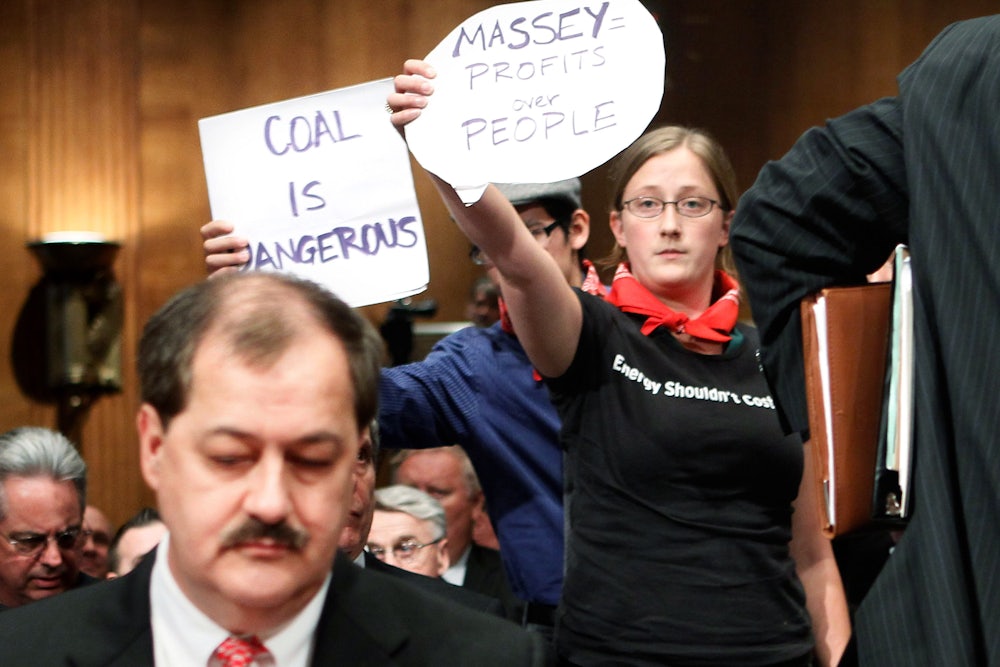Almost six years to the day after an April 5 explosion at his Upper Branch Mine, former CEO of Massey Energy Don Blankenship has been sentenced to one year in jail plus a $250,000 fine. Blankenship’s sentence is the maximum possible for his misdemeanor charge of conspiracy to knowingly violate mine standards, which led to the blast at the West Virginia mine and killed 29 miners. His sentence is a rare moment of justice in an industry rarely beholden to legal punishment.
When Blankenship was indicted, it seemed a potential challenge to the grim status quo of the past 100 years: that miners die in avoidable accidents while mine owners continue to profit without punishment. Though annual deaths are no longer in the thousands, as they were in the early 1900s, an average of 35 miners have died per year from 2006-2010. In the wake of the 2010 explosion, Congress voted against a bill that would have strengthened penalties on crimes like Blankenship’s. Since then, Democrats have presented similar legislation with little progress.
Though coal is on the way out, figures like Blankenship still hold great power in areas where coal was king—not only controlling the economy but running for office. Though his lawyers announced they would appeal the decision, Blankenship’s conviction could set a precedent that coal bosses are no longer above the law—even if they are still able to escape convictions heavier than a misdemeanor.
